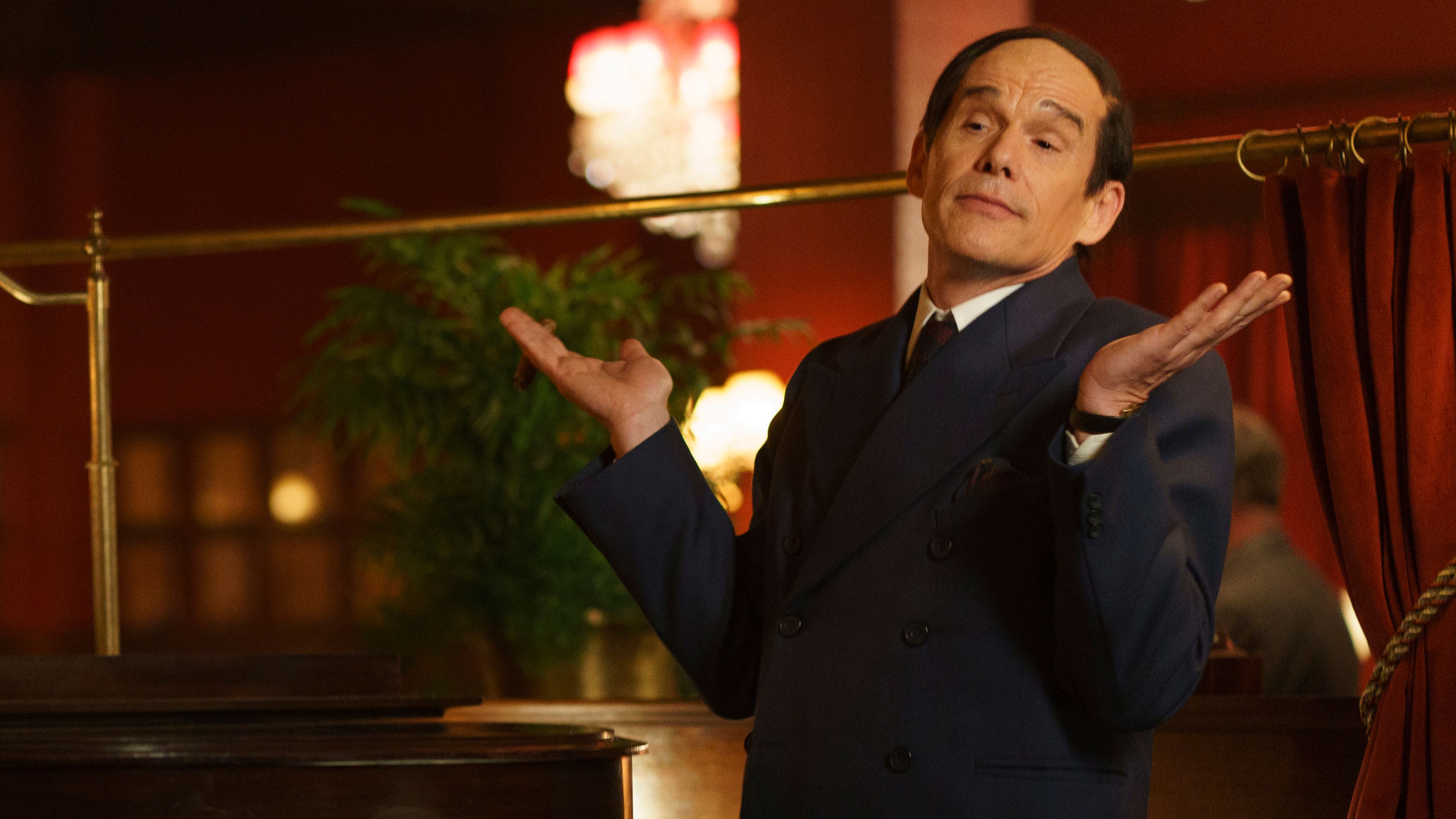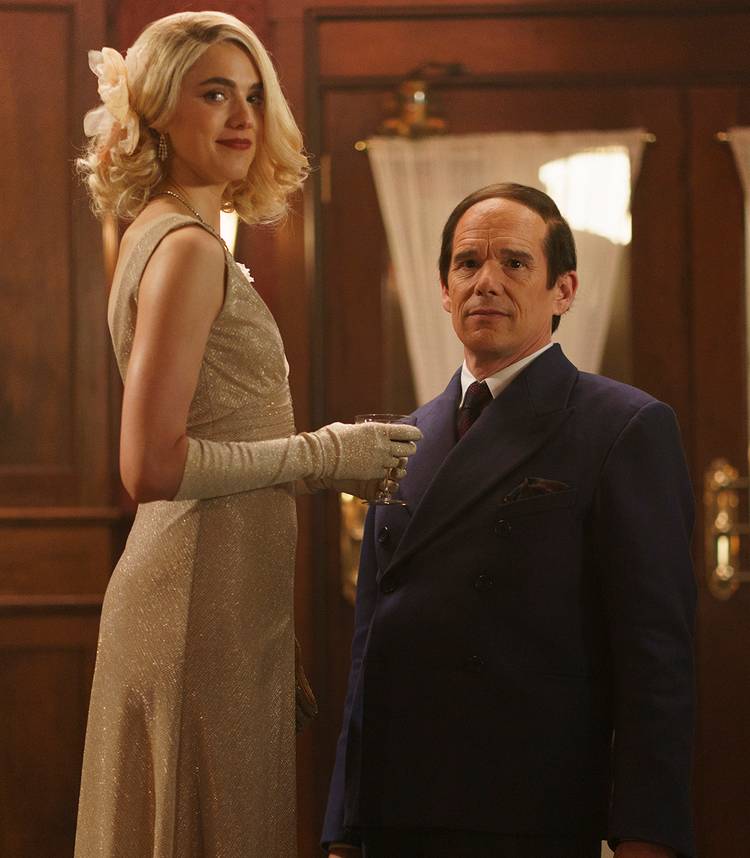
Ethan Hawke and Richard Linklater reunite for “Blue Moon,” a new film that offers a fresh take on the traditional biopic. The movie, their ninth collaboration, focuses on Lorenz Hart, the songwriting partner of Richard Rodgers, during the 1943 premiere of “Oklahoma!”. It portrays Hart grappling with alcoholism and depression while also facing growing tensions with Rodgers.
Featuring Margaret Qualley, Bobby Cannavale, and Andrew Scott as Hammerstein, Blue Moon has been highly praised since its premiere at the Berlin International Film Festival. Currently, it boasts an 88% approval rating on Rotten Tomatoes. Critics especially appreciate the film’s unique take on the biopic format – rather than covering a person’s entire life, it focuses on a single night, offering a focused portrait of its subject.
To celebrate the release of the film, ScreenRant spoke with Ethan Hawke and Andrew Scott about Blue Moon. When asked how the movie differs from other recent biopics, such as Springsteen: Deliver Me from Nowhere (also out this weekend), Hawke explained that, ultimately, a movie’s success depends on whether it’s engaging for viewers—something that holds true whether the subject is a contemporary figure like Springsteen or a classic one like Lorenz Hart.
Ethan Hawke described the film as a drama and highlighted how director Richard Linklater and writer Robert Kaplow cleverly avoided a typical life-story format. Instead of covering Hart’s entire life, they chose to focus on a single night, making Blue Moon “really interesting” for both fans and those unfamiliar with the composer.

Ethan Hawke believes many biopics simply list facts from a person’s life – where they were born, their relationships, key events – instead of truly telling a compelling story. He feels the upcoming Springsteen biopic might fall into this trap, using Springsteen’s life as a framework for a narrative rather than exploring his inner life and experiences in a meaningful way.
I really connected with what Hawke was getting at with this film – it’s a refreshing change from the typical biopic. So many of those just march chronologically through an artist’s life, but this one feels different. It’s like Hawke wants us to forget everything we think we know about the subject, to ‘unlearn the biography’ as he put it. That allows the movie to explore those fascinating, often overlooked periods between the big moments – those times when the artist is struggling, maybe even feeling like they’ll never work again. It’s a bold approach that really lets you see the person, not just the legend.
Hawke explained that people often don’t believe an artist genuinely struggled with self-doubt once they’ve moved past it. Instead, they assume that negative experiences – like harsh reviews or a project failing – are actually helpful and will inspire the artist to improve.
Ethan Hawke described how the character felt like his career and life were falling apart, admitting, “I thought I might be dead, I was going to lose everything, and I was really unhappy.” He explained that it’s scary to live in the moment because you can’t predict the future. He and the filmmakers were drawn to a particular moment in the movie where Richard Rodgers is on the verge of finding out if his show, Oklahoma!, will be a success. Hawke recalled a scene where he tells Rodgers it will be a huge hit, and Rodgers desperately wants that to be true, even though it’s not certain. Hawke related this to people telling him he’d win a Tony award, something he actively tried to avoid hearing because he didn’t want to jinx it.
Scott pointed out that when artists are between jobs, they have a remarkable ability to find and share stories. He explained that even when things seem difficult or headed for failure, unexpected events can shift the narrative in a positive way.
Everything Else We Learned About Blue Moon From Ethan Hawke & Andrew Scott
ScreenRant asked Ethan if, having now worked on a film that covers two hours of story, he’s been involved in both Richard Linklater’s shortest and longest movies.
Ethan Hawke: That is fair to say, yes.
ScreenRant asked the actor about how they got so into character, noting their significant physical transformation and surprising vocal changes. They were curious about the process and wanted to know what went on behind the scenes to achieve the performance.
Ethan Hawke believes an actor’s success depends heavily on the roles they’re given. He emphasizes the importance of fully committing when a truly great opportunity arises. Playing Larry Hart was particularly challenging, demanding everything he’d learned as an actor. He acknowledges that some actors might have delivered a better performance, but roles like this—comparable to Hamlet or Macbeth—are so demanding that an actor will always feel limited by their own abilities. He found himself constantly wondering how legendary actors like Ian McKellen or Jack Nicholson would approach the part, recognizing the immense potential of the role and the challenge of bringing it to life in his own way.
During a discussion about the movie Blue Moon, someone pointed out a memorable line near the end. Larry tells Bobby’s bartender, “You’re the best listener I’ve ever met.” This led to a question: who is the best listener you’ve ever encountered?
That’s a first! It’s something I’ve realized recently – I’m incredibly fortunate. My wife is truly an amazing listener, better than anyone I’ve ever known.
Andrew Scott: That’s wonderful.
Ethan Hawke describes her as a truly good friend because she genuinely listens to others. He contrasts this with his own tendency to focus on what he’ll say next, explaining that she’s wonderful to talk to because she really hears you and tries to understand your perspective.
It’s amazing to think about the impact my mom had on my life. She was truly a great listener, and it meant the world to me. Sadly, she passed away just six weeks before we finished filming. You always notice when someone doesn’t listen, and I miss her so much, for that and countless other reasons.
Read More
- Best Controller Settings for ARC Raiders
- Donkey Kong Country Returns HD version 1.1.0 update now available, adds Dixie Kong and Switch 2 enhancements
- How To Watch A Knight Of The Seven Kingdoms Online And Stream The Game Of Thrones Spinoff From Anywhere
- Ashes of Creation Rogue Guide for Beginners
- PS5’s Biggest Game Has Not Released Yet, PlayStation Boss Teases
- When to Expect One Piece Chapter 1172 Spoilers & Manga Leaks
- Sega Insider Drops Tease of Next Sonic Game
- New Netflix Movie Based on Hugely Popular Book Becomes An Instant Hit With Over 33M Hours Viewed
- Darkwood Trunk Location in Hytale
- Hytale: Upgrade All Workbenches to Max Level, Materials Guide
2025-10-24 21:10